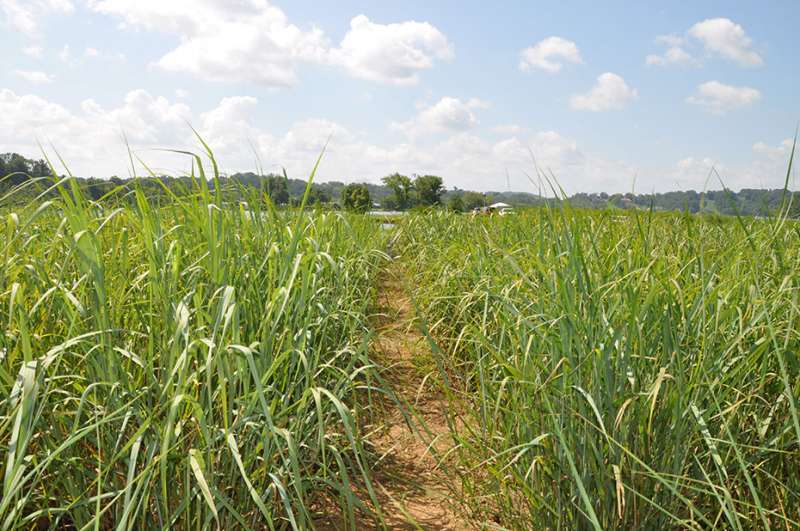Modified switchgrass has no negative effect on soils

Overcoming the natural resistance of plant cell walls to deconstruction, known as recalcitrance, is a major bottleneck to cost-effective biofuel production. In response, scientists modified lignin. Lignin is one of the polymers responsible for recalcitrance and crucial for structural support within plant tissues. Modifying lignin improved the conversion of plant biomass to fuel. Yet a question remained. Will specifically modified bioenergy crops negatively impact the local soil? In field studies, researchers confirmed that growing genetically manipulated switchgrass as no negative effects on soils over the short terms studied (2 to 5 years).
Cultivating genetically modified bioenergy crops over large areas could greatly improve biofuel production. However, little is known about the impact such crops could have on soil health relative to native plants. This study sought to characterize these impacts. The team evaluated physical, chemical, and biological parameters of soil health over several years during field trials of engineered switchgrass. The study found no significant effects.
Scientists at the BioEnergy Science Center (BESC) genetically modified switchgrass, a promising bioenergy crop, to produce less lignin resulting in an improved ethanol conversion process. However, the longer-term impact of lignin-reduced switchgrass on soils in terms of its physical, chemical, and microbiological attributes was unknown. An analysis comparing lignin-altered lines of switchgrass against non-altered switchgrass (controls) showed no detectable effect on soil chemistry, with no significant changes to soil pH or 19 other measured major elements. The soil microbiome, important to the fate of nutrients and carbon, exhibited seasonal differences between the altered and control crops, but overall there was no significant difference. Furthermore, the rate of carbon sequestration, the production and storage of carbon in the soil, occurred at rates similar to the positive rates in control plots with unaltered switchgrass.
More information: Jennifer M. DeBruyn et al. Field-grown transgenic switchgrass (Panicum virgatum L.) with altered lignin does not affect soil chemistry, microbiology, and carbon storage potential, GCB Bioenergy (2016). DOI: 10.1111/gcbb.12407
Journal information: GCB Bioenergy
Provided by US Department of Energy
















